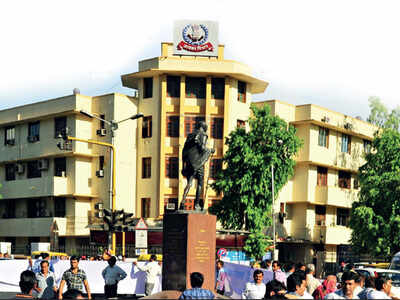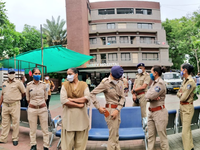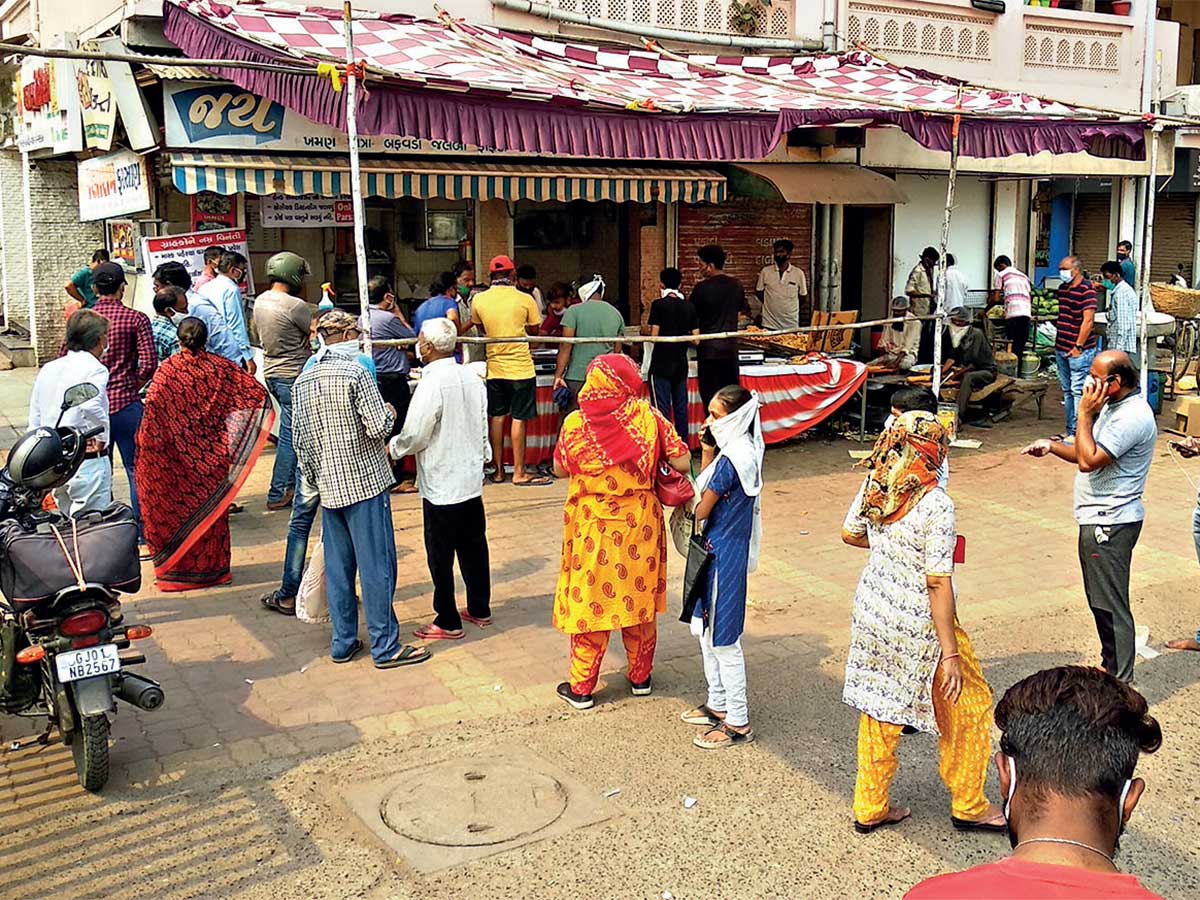Faceless e-appeals? We need a chance to be heard, plead tax practitioners

Income Tax Office
Questioning I-T dept’s discretionary powers to grant hearing to those wanting to appeal against decision on e-assessment, chartered accountants , tax advocates , other senior practitioners in Gujarat fear it can rob taxpayers of the chance to explain their cases effectively in person
After faceless e-assessment process, the Centre has introduced faceless e-appeal against any order or demand from the tax authorities. The idea is to make theprocess more transparent, accountable, efficient, and reduce chances of tax-payers being harassed by corrupt officials.
While, tax practitioners in Gujarat applaud the Centre’s intent to remove corruption through thefaceless system , they assert the government may have taken it too far by giving the Income-Tax department discretionary powers in granting a hearing to those seeking to appeal against decision on e-assessment.
The new system is meant to help taxpayers avoid personal interactions with authorities and still get the appeal decided. The National Faceless Appeals Centre is the nodal point for all appeals, and anyone’s appeal can be sent to any centre to be heard by any Commissioner (CIT) of Appeals appointed across the country. The commissioner has the power to confirm, reduce, enhance or annul the existing order and if taxpayers fail to convince the commissioner, they may not get relief. In the worst-case scenario, tax-payers may have to pay tax additions.
Due to this tax practitioners believe that pleading to the commissioner for relief should not be dependent only on written submission, but also face-to-face interaction wherein they can explain the complexities of their case effectively.
Taxation expert Mukesh Patel, who was also member of task force on simplification ofdirect tax legislation, says, “A tax-payer filing e-appeal will seek a hearing with the Commissioner of Appeals. The I-T department has discretionary power to grant or refuse this hearing. Hearing appellant is highly necessary in any judicial forum and no person can be deprived of the same. I believe a writ petition in this regard has also been filed in Delhi High Court, and a notice has been issued to the government.”
Patel says he has also represented this matter before the CBDT. “This was one of our fundamental points in the task force because justice demands you hear the appellant,” he adds. Similarly, advocateDhruven Shah , former president of Income-Tax Bar Association in Gujarat, says, “Nobody can understand an appeal without listening to what the appellant or their representative has to say because the law is subjective to interpretation.
You cannot understand it just by written submissions. If the appellant is not given a chance to speak, then proceedings are onesided. The judicial fora cannot take decisions without listening to why the appellant thinks the Assessing Officer is wrong.”
Patel says, instead of giving the I-T department the discretionary powers, the appellant should be given a choice of whether s/he wants to make an oral representation through video-conferencing. He said, “The department can decide for how long the appellant can make their argument. Plus, there is the factor of proof to consider in future appeals.
Since video conferences are recorded, they can be used as proof in higher judicial fora like the Income Tax Appellate Tribunal (ITAT), High Court, or eventhe Supreme Court . This will ensure greater accountability compared to the current system.” However, even as the same discretionary power exists in e-assessment, the demand for a hearing is only at appellate level.
An officer well-acquainted with the functioning of appeals, told Mirror that this discretionary power could possibly lead to lengthy process in high-demand cases. “While the government has made changes in the first appeal process before CIT Appeals, the same has not been done at ITAT-level because filing of second appeal is still manual and hearing is done in person before the bench. So bigger cases will obviously still come to second appeal to ITAT.”
A retired senior IRS officer confides, “Petitioners who have approached Delhi HC have a very good chance of winning as listening to both parties is central to the judicial system in India. The judicial process of appeals will be streamlined if matters of contention are explained and understood through video-conferencing.”
Mirror tried to reach out to Amit Jain, Director General of Income-Tax in Gujarat. However, he remained unavailable for comment.
After faceless e-assessment process, the Centre has introduced faceless e-appeal against any order or demand from the tax authorities. The idea is to make the
While, tax practitioners in Gujarat applaud the Centre’s intent to remove corruption through the
‘Audi alteram partem (listening to the other side)’ is imperative in income-tax appeals, aver tax practitioners who have brought this matter before the Central Board of Direct Taxes. The faceless e-appeal scheme came into effect on September 25, as a sequel to the e-assessment system which came into effect on August 13 this year.
The new system is meant to help taxpayers avoid personal interactions with authorities and still get the appeal decided. The National Faceless Appeals Centre is the nodal point for all appeals, and anyone’s appeal can be sent to any centre to be heard by any Commissioner (CIT) of Appeals appointed across the country. The commissioner has the power to confirm, reduce, enhance or annul the existing order and if taxpayers fail to convince the commissioner, they may not get relief. In the worst-case scenario, tax-payers may have to pay tax additions.
Due to this tax practitioners believe that pleading to the commissioner for relief should not be dependent only on written submission, but also face-to-face interaction wherein they can explain the complexities of their case effectively.
Taxation expert Mukesh Patel, who was also member of task force on simplification of
Patel says he has also represented this matter before the CBDT. “This was one of our fundamental points in the task force because justice demands you hear the appellant,” he adds. Similarly, advocate
Commissioner of Appeals pronounces a decision on the appeal. So, as it happens in any other court, the appellant must be given a chance to present his/her side of things
Nobody can understand an appeal without listening to what the appellant or their representative has to say because the law is subjective to interpretation
Hearing appellant is highly necessary in any judicial forum and no person can be deprived of this
You cannot understand it just by written submissions. If the appellant is not given a chance to speak, then proceedings are onesided. The judicial fora cannot take decisions without listening to why the appellant thinks the Assessing Officer is wrong.”
Patel says, instead of giving the I-T department the discretionary powers, the appellant should be given a choice of whether s/he wants to make an oral representation through video-conferencing. He said, “The department can decide for how long the appellant can make their argument. Plus, there is the factor of proof to consider in future appeals.
Since video conferences are recorded, they can be used as proof in higher judicial fora like the Income Tax Appellate Tribunal (ITAT), High Court, or even
An officer well-acquainted with the functioning of appeals, told Mirror that this discretionary power could possibly lead to lengthy process in high-demand cases. “While the government has made changes in the first appeal process before CIT Appeals, the same has not been done at ITAT-level because filing of second appeal is still manual and hearing is done in person before the bench. So bigger cases will obviously still come to second appeal to ITAT.”
A retired senior IRS officer confides, “Petitioners who have approached Delhi HC have a very good chance of winning as listening to both parties is central to the judicial system in India. The judicial process of appeals will be streamlined if matters of contention are explained and understood through video-conferencing.”
Mirror tried to reach out to Amit Jain, Director General of Income-Tax in Gujarat. However, he remained unavailable for comment.
GALLERIES View more photos























Recent Messages ()
Please rate before posting your Review
SIGN IN WITH
Refrain from posting comments that are obscene, defamatory or inflammatory, and do not indulge in personal attacks, name calling or inciting hatred against any community. Help us delete comments that do not follow these guidelines by marking them offensive. Let's work together to keep the conversation civil.